Vehicle Recalls Are Down in the U.S., but Not Everyone's Celebrating

Automotive recalls in the United States dropped to the lowest level since 2013 last year. In 2017, domestic recalls fell to 30.7 million — far less than 2016’s record high of 53 million. That’s good news, right?
Probably. The National Highway Traffic Safety Administration demands manufacturers be Johnny-on-the-spot with fixes ever since General Motors’ ignition switch scandal back in 2014. That means it’s either gotten incredibly lax in its duties under Donald Trump’s watch or automakers simply had a better year. While the NHTSA suffered important staff shortages for literally all of 2017 and has seen the current administration pressing for less regulation overall, the recall decline could also be attributed to the Takata airbag inflator situation finally winding down.
However, it’s no secret that the Obama administration wanted to see the safety administration exercising its regulatory muscle. In 2016, automakers issued a record 924 recall campaigns. That number fell to 813 last year. The NHTSA has also neglected to impose new vehicle safety fines since Trump took office and been operating without permanent leadership for more than 13 months.
To some extent, this comes down to the Trump administration’s efforts to streamline the federal bureaucracy. But the confirmation process for presidential appointments can also be lengthy. The White House has repeatedly accused Democrats of dragging things out in response to so many nominees coming from the business world, rather than government. Regardless, many have become concerned with the National Highway Traffic Safety Administration’s lack of activity.
“This agency is in a stall … They are not going to do very much without political leadership,” said Joan Claybrook, a former NHTSA administrator and prominent consumer advocate, said last fall.
That may be true, however the fact remains that Takata’s airbag recall ultimately affected 42 million U.S. vehicles — with the vast majority cropping up before 2017. It would be presumptuous to accuse the NHTSA’s lax enforcement year as the sole cause of the safety recall decline. However, it might also be unwise to assume it isn’t allowing automakers to fly a few defects under the radar.
[Source: Reuters]

A staunch consumer advocate tracking industry trends and regulation. Before joining TTAC, Matt spent a decade working for marketing and research firms based in NYC. Clients included several of the world’s largest automakers, global tire brands, and aftermarket part suppliers. Dissatisfied with the corporate world and resentful of having to wear suits everyday, he pivoted to writing about cars. Since then, that man has become an ardent supporter of the right-to-repair movement, been interviewed on the auto industry by national radio broadcasts, driven more rental cars than anyone ever should, participated in amateur rallying events, and received the requisite minimum training as sanctioned by the SCCA. Handy with a wrench, Matt grew up surrounded by Detroit auto workers and managed to get a pizza delivery job before he was legally eligible. He later found himself driving box trucks through Manhattan, guaranteeing future sympathy for actual truckers. He continues to conduct research pertaining to the automotive sector as an independent contractor and has since moved back to his native Michigan, closer to where the cars are born. A contrarian, Matt claims to prefer understeer — stating that front and all-wheel drive vehicles cater best to his driving style.
More by Matt Posky
Latest Car Reviews
Read moreLatest Product Reviews
Read moreRecent Comments
- Bd2 Lexus is just a higher trim package Toyota. ^^
- Tassos ONLY consider CIvics or Corollas, in their segment. NO DAMNED Hyundais, Kias, Nissans or esp Mitsus. Not even a Pretend-BMW Mazda. They may look cute but they SUCK.I always recommend Corollas to friends of mine who are not auto enthusiasts, even tho I never owed one, and owned a Civic Hatch 5 speed 1992 for 25 years. MANY follow my advice and are VERY happy. ALmost all are women.friends who believe they are auto enthusiasts would not listen to me anyway, and would never buy a Toyota. They are damned fools, on both counts.
- Tassos since Oct 2016 I drive a 2007 E320 Bluetec and since April 2017 also a 2008 E320 Bluetec.Now I am in my summer palace deep in the Eurozone until end October and drive the 2008.Changing the considerable oils (10 quarts synthetic) twice cost me 80 and 70 euros. Same changes in the US on the 2007 cost me $219 at the dealers and $120 at Firestone.Changing the air filter cost 30 Euros, with labor, and there are two such filters (engine and cabin), and changing the fuel filter only 50 euros, while in the US they asked for... $400. You can safely bet I declined and told them what to do with their gold-plated filter. And when I changed it in Europe, I looked at the old one and it was clean as a whistle.A set of Continentals tires, installed etc, 300 EurosI can't remember anything else for the 2008. For the 2007, a brand new set of manual rec'd tires at Discount Tire with free rotations for life used up the $500 allowance the dealer gave me when I bought it (tires only had 5000 miles left on them then)So, as you can see, I spent less than even if I owned a Lexus instead, and probably less than all these poor devils here that brag about their alleged low cost Datsun-Mitsus and Hyundai-Kias.And that's THETRUTHABOUTCARS. My Cars,
- NJRide These are the Q1 Luxury division salesAudi 44,226Acura 30,373BMW 84,475Genesis 14,777Mercedes 66,000Lexus 78,471Infiniti 13,904Volvo 30,000*Tesla (maybe not luxury but relevant): 125,000?Lincoln 24,894Cadillac 35,451So Cadillac is now stuck as a second-tier player with names like Volvo. Even German 3rd wheel Audi is outselling them. Where to gain sales?Surprisingly a decline of Tesla could boost Cadillac EVs. Tesla sort of is now in the old Buick-Mercury upper middle of the market. If lets say the market stays the same, but another 15-20% leave Tesla I could see some going for a Caddy EV or hybrid, but is the division ready to meet them?In terms of the mainstream luxury brands, Lexus is probably a better benchmark than BMW. Lexus is basically doing a modern interpretation of what Cadillac/upscale Olds/Buick used to completely dominate. But Lexus' only downfall is the lack of emotion, something Cadillac at least used to be good at. The Escalade still has far more styling and brand ID than most of Lexus. So match Lexus' quality but out-do them on comfort and styling. Yes a lot of Lexus buyers may be Toyota or import loyal but there are a lot who are former GM buyers who would "come home" for a better product.In fact, that by and large is the Big 3's problem. In the 80s and 90s they would try to win back "import intenders" and this at least slowed the market share erosion. I feel like around 2000 they gave this up and resorted to a ton of gimmicks before the bankruptcies. So they have dropped from 66% to 37% of the market in a quarter century. Sure they have scaled down their presence and for the last 14 years preserved profit. But in the largest, most prosperous market in the world they are not leading. I mean who would think the Koreans could take almost 10% of the market? But they did because they built and structured products people wanted. (I also think the excess reliance on overseas assembly by the Big 3 hurts them vs more import brands building in US). But the domestics should really be at 60% of their home market and the fact that they are not speaks volumes. Cadillac should not be losing 2-1 to Lexus and BMW.
- Tassos Not my favorite Eldorados. Too much cowbell (fins), the gauges look poor for such an expensive car, the interior has too many shiny bits but does not scream "flagship luxury", and the white on red leather or whatever is rather loud for this car, while it might work in a Corvette. But do not despair, a couple more years and the exterior designs (at least) will sober up, the cowbells will be more discreet and the long, low and wide 60s designs are not far away. If only the interiors would be fit for the price point, and especially a few acres of real wood that also looked real.



















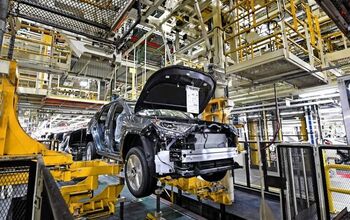
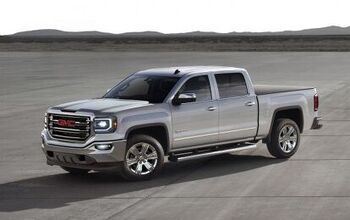
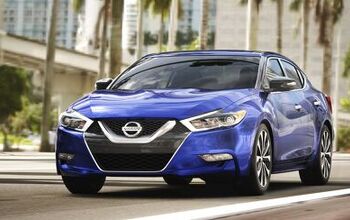
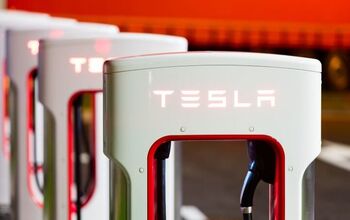
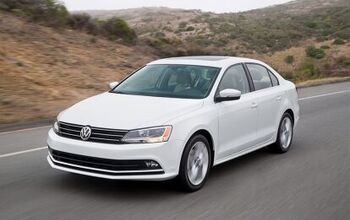




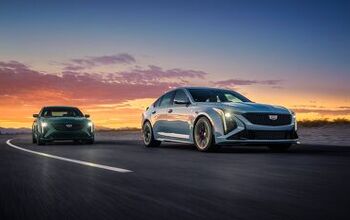





Comments
Join the conversation
Clickbait, with no facts, just speculation. Thank you, St. George, for bringing at least a few facts into the picture. As a quasi-native of the DC swamp, I'm pretty familiar with how this works. The political appointees set the policy direction for the agency, the career people carry it out. Since most career people at regulatory agencies are regulators at heart, in the absence of contrary directions from the top, they're gonna regulate. So, in the absence of new leadership at the top, it's pretty unlikely that the career folks at NHTSA have given up regulating.
Recall rates dropping from all time highs doesn't necessarily mean enforcement is lacking. Recall rates started rising up in the 2007 era. If we're "the lowest since 2013", we're still higher than we used to be. Historically, 2013 was a very high year for recalls. Keep things in perspective. Recall rates are still very high and may simply be stabilizing.